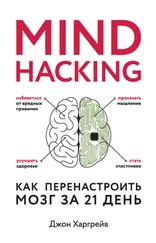7. Sylvia Nasar, “The sum of a man,” Guardian , March 25, 2002, http://www.theguardian.com/books/2002/mar/26/biography.highereducation.
8. Tore Frängsmyr (ed.), Les Prix Nobel: The Nobel Prizes 1994 (Stockholm: Nobel Foundation, 1994), http://www.nobelprize.org/nobel_prizes/economic-sciences/laureates/1994/nash-bio.html.
9. “Glimpsing Inside a Beautiful Mind,” Schizophrenia.com, April 10, 2005, http://www.schizophrenia.com/sznews/archives/001617.html.
10. Sylvia Nasar, A Beautiful Mind: A Biography of John Forbes Nash, Jr., Winner of the Nobel Prize in Economics, 1994 (New York: Simon & Schuster, 1998).
11. John Milnor, “John Nash and the Beautiful Mind,” Notices of the American Mathematical Society 45, No. 10 (1998): 1329.
12. Wendy Hasenkamp and Lawrence W. Barsalou, “Effects of Meditation Experience on Functional Connectivity of Distributed Brain Networks,” Frontiers in Human Neuroscience , March 1, 2012.
13. Daniel Goleman, “Exercising the Mind to Treat Attention Deficits,” New York Times , May 12, 2014, http://well.blogs.nytimes.com/2014/05/12/exercising-the-mind-to-treat-attention-deficits.
14. See Douglas Hofstadter’s excellent book I Am a Strange Loop (New York: Basic Books, 2007) for a fascinating explanation of the mind-bending work of mathematician Kurt Gödel.
1.2 Your Mind Has a Mind of Its Own
1. Thomas H. Davenport and John C. Beck, The Attention Economy: Understanding the New Currency of Business (Boston: Harvard Business School Press, 2002).
2. Robert Rogers and Stephen Monsell, “The Costs of a Predictable Switch Between Simple Cognitive Tasks,” Journal of Experimental Psychology: General 124, No. 2 (1995): 207–31.
3. Joshua S. Rubinstein, David E. Meyer, and Jeffrey E. Evans, “Executive Control of Cognitive Processes in Task Switching,” Journal of Experimental Psychology: Human Perception and Performance 27, No. 4 (2001): 763–97.
4. Edward M. Hallowell, Crazy Busy: Overstretched, Overbooked, and About to Snap! Strategies for Handling Your Fast-Paced Life (New York: Ballantine Books, 2007).
5. Bill Chappell, “Stanford Professor Who Sounded Alert on Multitasking Has Died,” NPR , Nov. 7, 2013, http://www.npr.org/blogs/thetwo-way/2013/11/07/243762058/stanford-professor-who-sounded-alert-on-multitasking-has-died(accessed Dec. 1, 2013). Emphasis mine.
6. Soren Gordhamer, Wisdom 2.0: Ancient Secrets for the Creative and Constantly Connected (New York: HarperOne, 2009).
7. “ADHD Data and Statistics,” Centers for Disease Control and Prevention , Nov. 13, 2013, http://www.cdc.gov/ncbddd/adhd/data.html.
8. “Frequent Cell Phone Use Linked to Anxiety, Lower Grades and Reduced Happiness in Students, Kent State Research Shows,” Kent State University, Dec. 6, 2013, http://www2.kent.edu/news/news-detail.cfm?newsitem=C87DA8EB-0E77-DCF2-AAD1C317FB742933.
9. “Turn Off Your Smart Phone to Beat Stress,” British Psychological Society , Dec. 1, 2012, http://www.bps.org.uk/news/turn-your-smart-phone-beat-stress.
1.3 Developing Jedi-Like Concentration
1. William James, The Principles of Psychology (New York: H. Holt and Company, 1890), chapter 11.
2. H. Pashler, J. Johnston, and E. Ruthruff, “Attention and Performance,” Annual Review of Psychology 52, No. 1 (2001): 629–51.
3. Benedict Carey, “Remembering, as an Extreme Sport,” New York Times , May 19, 2014, http://well.blogs.nytimes.com/2014/05/19/remembering-as-an-extreme-sport.
4. Tim Wu, “How Today’s Computers Weaken Our Brain,” New Yorker , Sept. 9, 2013, http://www.newyorker.com/tech/elements/how-todays-computers-weaken-our-brain.
5. B. V. Zeigarnik, “Über das Behalten von erledigten und unerledigten Handlungen” (“The retention of completed and uncompleted activities”), Psychologische Forschung , No. 9 (1927): 1–85.
6. Walter Isaacson, Steve Jobs , 39.
7. Amishi P. Jha, Jason Krompinger, and Michael J. Baime, “Mindfulness Training Modifies Subsystems of Attention,” Cognitive, Affective, & Behavioral Neuroscience 7, No. 2 (2007): 109–119.
8. Antoine Lutz, Heleen A. Slagter, John D. Dunne, and Richard J. Davidson, “Attention Regulation and Monitoring in Meditation,” Trends in Cognitive Sciences 12, No. 4 (2008): 163–69.
9. Richard J. Davidson, Jon Kabat-Zinn, Jessica Schumacher, Melissa Rosenkranz, Daniel Muller, Saki F. Santorelli, Ferris Urbanowski, Anne Harrington, Katherine Bonus, and John F. Sheridan, “Alterations in Brain and Immune Function Produced by Mindfulness Meditation,” Psychosomatic Medicine 65, No. 4 (2003): 564–70.
10. Sean Barnes, Kirk Warren Brown, Elizabeth Krusemark, W. Keith Campbell, and Ronald D. Rogge, “The Role of Mindfulness in Romantic Relationship Satisfaction and Reponses to Relationship Stress,” Journal of Marital and Family Therapy 33, No. 4 (Oct. 2007): 482–500.
11. Richard J. Davidson et al., “Alterations in Brain and Immune Function Produced by Mindfulness Meditation,” Psychosomatic Medicine 65, No. 4 (July 2003): 564–70.
12. Charles Duhigg, The Power of Habit: Why We Do What We Do in Life and Business (New York: Random House, 2012).
13. Daniel Ingram, Mastering the Core Teachings of the Buddha (London: Aeon Books, 2008). I am indebted to Ingram for many of the concentration variations in this chapter. I highly recommend his book as a technical manual for those looking to master higher levels of concentration.
1.4 Debugging Your Mental Loops
1. Elizabeth Gilbert, Eat, Pray, Love: One Woman’s Search for Everything Across Italy, India and Indonesia (New York: Penguin, 2006).
2. Michael R. Williams, A History of Computing Technology (New York: IEEE Computer Society Press, 1997), 248–51.
3. Thomas P. Hughes, American Genesis: A History of the American Genius for Invention (New York: Penguin Books, 1989), 75.
4. Simson Garfinkel, “History’s Worst Software Bugs,” Wired , Nov. 2005.
5. Sharron Ann Danis, “Rear Admiral Grace Murray Hopper,” Feb. 16, 1997, http://ei.cs.vt.edu/~history/Hopper.Danis.html. Hopper also coined the phrase, “It’s easier to ask forgiveness than to ask permission,” the motto of any young go-getter in a risk-averse environment.
6. William Mass and Andrew Robertson, “From Textiles to Automobiles: Mechanical and Organizational Innovation in the Toyoda Enterprises, 1895–1933,” Business and Economic History 25, No. 2 (1996): 1–35.
7. Gregory Wallace, “Toyota Has Best Value: Consumer Reports,” CNN Money , Dec. 18, 2014: http://money.cnn.com/2014/12/18/autos/consumer-reports-best-value-toyota.
8. David Burns, The Feeling Good Handbook (New York: Plume, 1999), 4–7.
9. Napoleon Hill , Think and Grow Rich (New York: Tarcher, 2005), 249–55.
2.1 It’s All in Your Mind
1. David Bodanis, “Einstein the Nobody,” NASA , Oct. 15, 2005, http://www.pbs.org/wgbh/nova/physics/einstein-the-nobody.html.
2. A. S. Eddington, The Nature of the Physical World (Whitefish, MT: Kessinger Publishing, 2005), 276–81.
3. Andy Hertzfeld, “Reality Distortion Field,” Folklore , Feb. 1981, http://www.folklore.org/StoryView.py?story=Reality_Distortion_Field.txt.
4. Vindu Goel, “Mark Zuckerberg Says Secret of His Success Is Making Lots of Mistakes,” International New York Times , Dec. 11, 2014, http://bits.blogs.nytimes.com/2014/12/11/facebook-chief-says-secret-of-his-success-is-making-lots-of-mistakes.
5. Douglas Adams, The Hitchhiker’s Guide to the Galaxy (London: Pan Books, 1979). I changed “chemist’s” to “drugstore” for American readers.
Читать дальше
![Джон Харгрейв Mind Hacking [How to Change Your Mind for Good in 21 Days] обложка книги](/books/404192/dzhon-hargrejv-mind-hacking-how-to-change-your-min-cover.webp)











